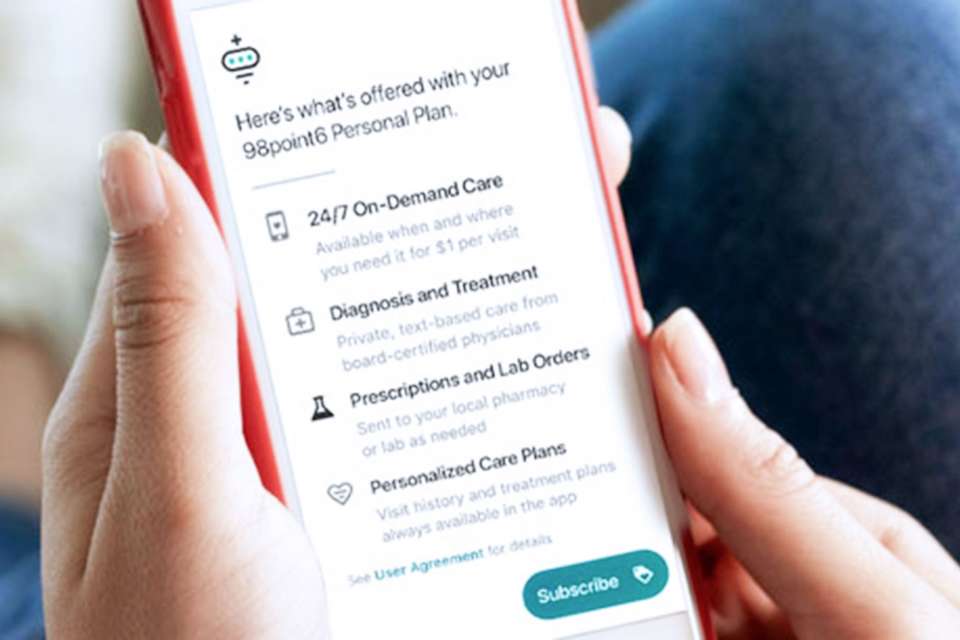
It’s 3 a.m., and you’ve just woken up in the worst sort of way: with sharp pains in your stomach (ugh).
You’d like to ask a doctor some questions, but urgent care doesn’t open for a few hours and you’re not sure this warrants a trip to the emergency room either. So what are your options?
With new innovations in healthcare, now all you have to do is pick up your phone and open an app to get real-time care from a board-certified physician.
“It’s great to have 24/7, 365-day availability for common things that happen,” says Dr. John Scott, medical director of UW Medicine Digital Health. “If you want to avoid the emergency department or urgent care, you have this very convenient option.”
Two different types of virtual care
While in-person visits with your primary care doctor are still necessary for cancer screenings, physical exams and getting vaccinated, there are still times — ahem, like in the middle of a pandemic — when a virtual visit may simply be more convenient.
That’s why many medical organizations are offering alternatives for their patients. UW Medicine, for example, provides two types of virtual visits.
One is a telemedicine video-based appointment with your regular UW Medicine doctor, nurse practitioner, physician assistant or midwife. These appointments are scheduled in advance and work the same way an in-person visit might. You can discuss health concerns, review medications and even go over your diet, mental health and physical activity.
The other is a text-based virtual visit, which lets you connect 24/7 with a 98point6 board-certified physician on demand. It’s ideal for when you have a sudden health concern but maybe don’t feel like getting out of bed at dark o’clock.
“We’re really excited about it because it’s adapting to the new reality of how patients want to engage in care,” Scott explains.

How does a text-based visit work?
Back to that “feeling awful in the middle of the night” example. How can you get help via an app?
It works like this: After downloading the 98point6 app on your phone and creating your profile, you’ll be prompted to answer a few screening questions. Then you’ll be connected to a 98point6 physician, who you can communicate with about your symptoms.
After the doctor makes a diagnosis, they’ll offer up a treatment option, which can include anything from ways to help soothe that sore throat to ordering a prescription. When your virtual visit is over, they’ll also loop in your regular UW Medicine care team so all of your medical records are up to date.
Voilà — you never even had to change out of your pajamas.
When should you use a text-based visit?
Aside from the convenience factor of being able to communicate with a doctor at all hours and from any location, text-based visits also cover a surprisingly wide range of health concerns.
You can get diagnoses and treatment suggestions for a variety of minor illnesses and injuries, from colds, allergies and the flu to pink eye, sprains and urinary tract infections. 98point6 doctors are also equipped to field questions about fevers, headaches, heartburn and, yes, COVID-19.
And if you have a minor concern related to a chronic condition like diabetes, asthma or anxiety, you can also use the app to get immediate advice if your regular doctor is unavailable.
On the other hand, if you’re experiencing a medical emergency or have a more serious health issue — you feel a tightness in your chest or are suddenly slurring your words, for example — it’s best to go to the emergency room or urgent care.
Who should use text-based care?
Being able to communicate quickly with a doctor is great for those who want to ask a question about a minor health issue, but there are certain things you should know before using this option.
For one, you have to be 18 years or older to receive care using the app. You also need a subscription for the service: It costs $30 for the first three months, plus $1 per visit.
That said, if you’re someone who travels often (in non-pandemic times, of course), has follow-up health questions every once in a while or simply likes having the ability to get quick health advice whenever you need it, text-based care can be a particularly helpful resource.
“We’ve heard from patients that it’s more convenient,” Scott explains. “It fits in with their everyday life, especially if you’re on the go.”

 Healthy ideas for your inbox
Healthy ideas for your inbox





